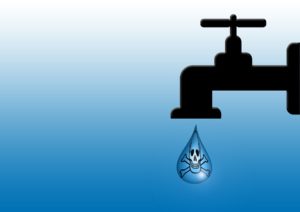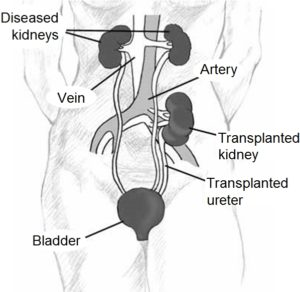How does drinking or public water system (PWS) contaminate with Escherichia coli, known as E.coli bacteria? Or, how is groundwater contaminated with E.coli bacterium or germ? How safe is the private well water for domestic use? Who checks or monitors private well water quality? Why are few types of E.coli harmful to human health? Why must we be concerned about E.coli bacteria?
Our body is composed of approximately 60 percent (%) water. The functions of our bodily fluids include circulation, digestion, absorption, and transportation of nutrients. There are few other reasons why drinking water benefits our body and good for health.
United States (US) Environmental Protection Agency (EPA’s) purpose of the total coliform rule (TCR) of 2013 is to increase public health protection through the reduction of potential pathways of entry for fecal contamination into distribution systems. This rule, which is part of the Safe Drinking Water Act (SDWA) of 1974 to conduct a monthly coliform test of one (1) sample for every one thousand (1,000) people water served a community.

Recently reported incidents in the news media about E.coli concern for the public should make us think as to why we must be aware of this issue? For instance, Cobb County’s Chattahoochee river in Georgia (GA) state, Bergen County towns in northern New Jersey, and Springfield, Florida (FL) respectively, were recently reported in the news.
The presence of E.coli in water is a strong indication of sewage or animal waste contamination. EPA’s Revised Total Coliform Rule (RTCR) establishes a maximum contaminant level (MCL) for E.coli and uses E.coli and total coliforms to initiate a “find and fix” approach to address fecal contamination that could enter into the distribution system. It requires PWS authorities to perform assessments to identify sanitary defects, and take corrective actions immediately.
EPA regulates PWSs, but not the private drinking water well systems. Unlike public drinking water systems, private wells do not have professionals regularly checking the water’s source and its quality before usage. Therefore, households who use private well water must take special precautions to ensure the safety of their drinking or domestic water supply.
SAFETY TIPS
To keep private drinking water well safe, the owners must check frequently for possible nearby sources of contamination. That is, private drinking water well owners should have the best management practice to avoid groundwater contamination in domestic well. Following are few tips that may help to prevent contamination in private well:
- Maintain and keep up-to-date well records, including installation, repairs, and water test results;
- Protect well’s surrounding area;
- Avoid storage and disposal of household and lawn care chemicals and wastes at and around the potable well area;
- Control erosion and prevent surface water runoff during rain and snow (melt) seasons.
- If you have a heating oil tank, check the underground storage tank system (USTs) for leaks; and
- Make sure your well is protected from the wastes of livestock, pets, and wildlife.
SYMPTOMS OF E-COLI
According to U.S. Centers for Disease Control and Prevention (CDC), one particular type of E. coli causes disease by making a toxin called Shiga toxin. The bacteria that make these toxins are called “Shiga-toxin-producing E. coli,” or STEC.

As per CDC, approximately 5–10% of those who are diagnosed with E. coli or STEC infection develop a potentially life-threatening complication known as a hemolytic uremic syndrome (HUS). CDC states that a person with HUS should be hospitalized because his or her kidney may stop working and they may develop other serious problems. Most persons with HUS recover within a few weeks, but some suffer permanent damage or die.
If you need free consultation on potable or drinking water issues, contact us by visiting our company’s website at www.ecgrn.com.
